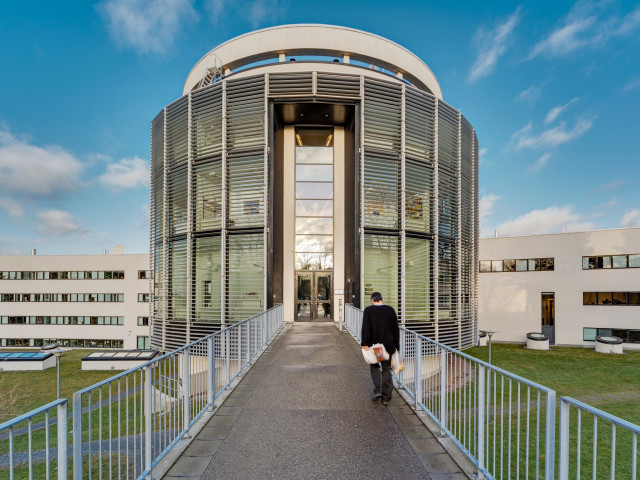Basic interaction processes of ionising radiation with matter. Basic concepts of dosimetry, dosimetric quantities and units. Accelerators for radiation therapy, principles of linear and circular accelerators. Optimal design of the therapy beam. Introduction to basic biological and chemical reactions in the irradiated cells. Lesions produced by radiation in DNA molecules. Cell survival models. Radiation effects on normal tissues and tumours. The biological basis of radiotherapy, oxygen effect, dose rate dependence, dose fractionation. Dose calculation in electron and photon beams. Algorithms for calculations of dose distribution in the patient. Principles of optimal treatment planning. Dose planning exercises. Special treatment modalities. Intensity Modulated Radiation Therap
HL2013 Radiation Therapy 7.5 credits

Information per course offering
Information for Autumn 2025 Start 27 Oct 2025 programme students
- Course location
KI Solna
- Duration
- 27 Oct 2025 - 12 Jan 2026
- Periods
Autumn 2025: P2 (7.5 hp)
- Pace of study
50%
- Application code
50768
- Form of study
Normal Daytime
- Language of instruction
English
- Course memo
- Course memo is not published
- Number of places
Places are not limited
- Target group
- No information inserted
- Planned modular schedule
- No information inserted
- Schedule
- Schedule is not published
Contact
Course syllabus as PDF
Please note: all information from the Course syllabus is available on this page in an accessible format.
Course syllabus HL2013 (Autumn 2023–)Content and learning outcomes
Course contents
Intended learning outcomes
The course gives a fundamental knowledge of physical, biological and clinical aspects of radiation therapy. A special focus is given to mathematical methods applied in dose planning systems and to treatment optimisation methods to get the best therapy outcome. The aim of the course is to provide an understanding of the basic physical and biological effects of ionising radiation in order to learn the principles of radiation therapy and to provide an overview of different mathematical tools for dose plan calculations.
After the course you should be able to:
- describe the effects in tissue from different types of ionising radiation such as photons, electrons, neutrons, protons or light ions
- give an overview of different accelerator designs and irradiation techniques to treat tumours
- explain the main differences in radiobiological response of the low- and high let radiation
- describe the mathematical methods used in the dose calculations
- present and compare different radiation treatment strategies to obtain the best cancer cure and to spare healthy surrounding tissues under exposure to radiation
- describe imaging tools used during treatment planning and daily treatment sessions to target the cancer and for better control of the irradiated volume
Literature and preparations
Specific prerequisites
Bachelor's degree in technology or science. 4 credits in physics, 4 credits in anatomy and/or physiology. English 6/B
Literature
Examination and completion
Grading scale
Examination
- ÖVN1 - Exercises, 1.0 credits, grading scale: P, F
- PRO1 - Project, 2.0 credits, grading scale: P, F
- TEN1 - Examination, 4.5 credits, grading scale: A, B, C, D, E, FX, F
Based on recommendation from KTH’s coordinator for disabilities, the examiner will decide how to adapt an examination for students with documented disability.
The examiner may apply another examination format when re-examining individual students.
If the course is discontinued, students may request to be examined during the following two academic years.
Examiner
Ethical approach
- All members of a group are responsible for the group's work.
- In any assessment, every student shall honestly disclose any help received and sources used.
- In an oral assessment, every student shall be able to present and answer questions about the entire assignment and solution.
Further information
Course room in Canvas
Offered by
Main field of study
Education cycle
Supplementary information
Notice that the final schedule is not yet decided and the dates can be changed.
Lectures are given at the department of Medical Radiation Physics, Karolinska hospital.